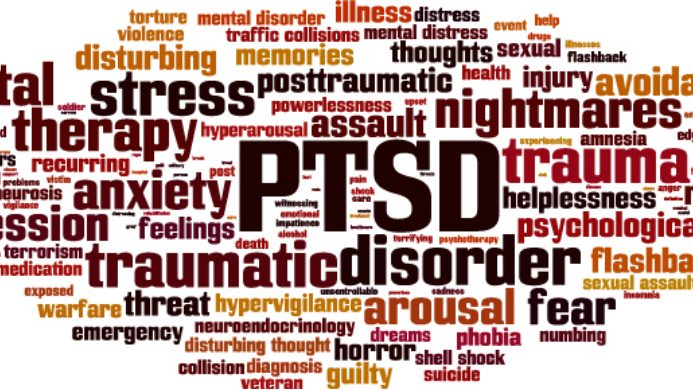According to the National Institute of Mental Health, 3.6% of American adults experience some form of PTSD each year. According to the statistics, women are three times more affected by Post Traumatic Stress Disorder than men.
PTSD is something that affects the lives of many people negatively. Most common among veterans in the battlefield and victims of sexual assault, PTSD can come from abuse, intimidation, natural disasters or simply by the passing of a relative or friend. Whether caused by emotional, psychological, or physical trauma, PTSD can persist for months, years, and even for life.
Being officially diagnosed with PTSD comes down to some specific criteria. A person needs to suffer from PTSD for at least one month, and experiences can include random flashbacks to traumatic events. Triggers and activity symptoms which exist outside of these flashbacks are another criteria for PTSD. Mood and cognition symptoms and things like insomnia, anxiety, and depression are also factors taken into account diagnosing someone with PTSD.
The various treatments available for PTSD usually come in the form of a combination of therapies. Cognitive Behavioral Therapy is an excellent first port of call, to discuss the trauma and speak things out with a professional. Prolonged exposure therapy – which aims to take the patient to the place where the trauma happened – is also employed by some PTSD therapists.
Other forms of therapy including cognitive processing therapy and
Eye movement desensitization and reprocessing are also used, but often it’s more a case of trial and error than anything else. SSRI medications such as Zoloft and Prozac are often freely prescribed to people living with PTSD. However, these medications often come with some inconvenient and potentially dangerous side effects.
However, there’s a growing movement of people with PTSD who are veering away from expensive therapy sessions and pharmaceutical drugs. These days, more and more in the PTSD community are using CBD to treat their symptoms. CBD, short for cannabidiol, is a compound found inside cannabis and hemp plants.
It’s associated with the treatment of various medical ailments and conditions. Some people use CBD successfully to treat anxiety, chronic pain, inflammation, and insomnia. But CBD can also be used to treat more severe conditions like some forms of epilepsy, Parkinson’s Disease, MS, and the list goes on.
CBD as a novel treatment for PTSD has been studied with numerous papers being published on the subject. A study posted just a few months ago entitled, “Cannabidiol in the Treatment of Post-Traumatic Stress Disorder: A Case Series” looked at the effect CBD had on test subjects suffering from CBD under lab conditions. The conclusion of that case series revealed that “Administration of oral CBD in addition to routine psychiatric care was associated with PTSD symptom reduction in adults with PTSD.”
The study further concluded that “CBD also appeared to offer relief in a subset of patients who reported frequent nightmares as a symptom of their PTSD.” That’s pretty compelling although the study also noted that, “Additional clinical investigation, including double-blind, placebo-controlled trials, would be necessary to substantiate further the response to CBD that was observed in this study.”
CBD reacts with receptors located throughout the body called CB1 and CB2 receptors. These receptors make up part of the Endocannabinoid System (ECS) in humans. CBD helps to balance a range of daily functions such as sleep, mood, and appetite. But CBD also blocks the retrieval of traumatic memories by the brain through this system. This, in turn, means that a person living with PTSD, given the right amount of CBD, can feel less anxious and reflect less on whatever traumatic experience affected them.
CBD is a naturally occurring compound in cannabis and hemp and is, therefore, a lot safer than SSRIs and other psychotropic drugs. CBD is also organic and non-addictive and often costs a lot less than some prescription drugs. At the right dosage, CBD can work to reduce anxiety from PTSD. CBD can also help to stop dreams and nightmares from occurring, and if they do, the sleep quality is often so good, the person doesn’t remember the dream at all.
There’s a significant amount of research into CBD and PTSD, which is easy to find online. With that said, more research and clinical trials are needed to ascertain the real efficacy of CBD for PTSD.








